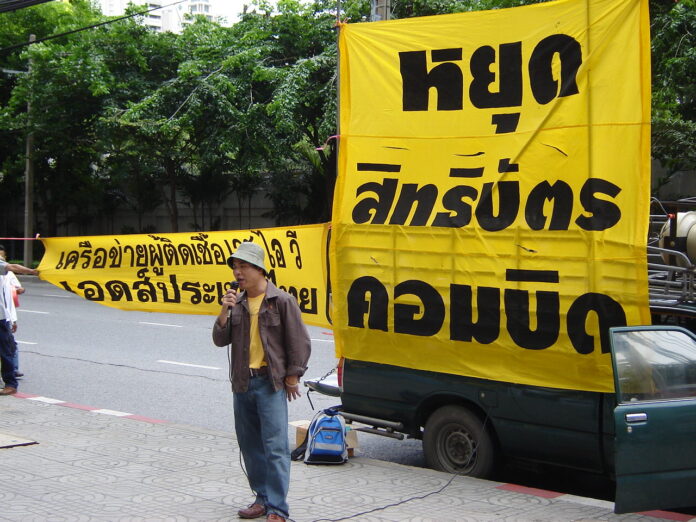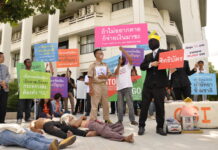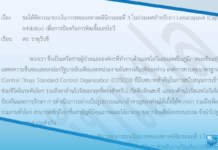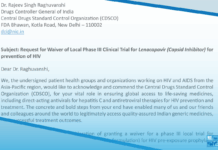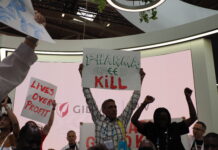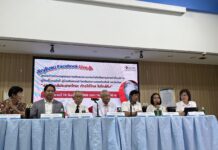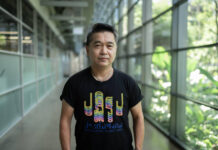On 27th October 1997, the pharmaceutical company, Glaxo- Smith- Klein (GSK) applied to the department of intellectual property rights for a patent on the drug “Combid” in Thailand. Combid is a combination of the existing drugs, Lamivudine (3TC) and Zidovudine (AZT) and is commonly used in first line HIV regiments.
Currently the Thai Government Pharmaceutical Organisation (GPO) is able to produce a generic version of the same compound under the name “Zilavir”. This drug is important for many PLHA who cannot take Stavudine (d4T) in their regime due to lipodystrophy side effects. If this patent was granted, the GPO will no longer be able to produce Zilavir and PLHA currently taking this drug will have to alter their regime to take 2 tablets instead of one, complicating issues of adherence. This will also drastically increase the price of the medicine.
TNP+ along with other HIV/AIDS NGOs, have been very concerned about the potential negative impact of a Combid patent and have joined with other interested parties to register our opposition. To date the Health and Development Foundation, an alliance of lawyers, academics and pharmacists, has lodged objections to the granting of a patent on Combid. The first objection was lodged in May 2000 and was on the grounds that Combid is not a new entity but merely a combination of 2 existing widely used drugs. This combination does not constitute an inventive step
This was dismissed in October 2005 citing a lack of evidence.
An appeal was lodged in December 2006 by the Health and Development Foundation and additional information was supplied to support their case.
In addition to the aforementioned opposition to the granting of a patent, other conflict of interest issues existed:
- a member of the committee for patents in the department of Intellectual property rights is married to an employee of GSK. This individual’s employment was terminated in a response to a complaint by the AIDS ACCESS Foundation, a local Thai NGO.
- another member of the board previously conducted a study for GSK. A complaint regarding this matter has been submitted to the Minister for Commerce and we are still awaiting a response.
Due to the numerous inconsistencies in their decision making, it is questionable whether the office of IPR possesses the capacity or expertise to adequately assess patent applications. This is particularly concerning given the pending Thai- US FTA and the subsequent additional responsibilities that this will bring.
To demonstrate our opposition to GSK unjust application for a patent for ‘Combid’ a demonstration was held on Monday 7th August in front of the GSK Bangkok office. This was in solidarity with public interest groups in India opposing an Indian patent for Combid and who also staged a demonstration at the same time outside the GSK offices in Bangalore.
We demanded that GSK withdraw its Combid patent application immediately in the interests of public health and fairness. TNP+ members from all regions of Thailand came to Bangkok to participate in this action.
Consequent to our action we received a letter from GSK stating their withdraw of the Combid patent application in Thailand, India and in all countries where it currently holds a patent or patent application. This is a great victory for PLHA in Thailand and around the world and is testimony to what can be achieved with people power, determination and a belief in the right for affordable access for all.
We will continue to fight for the access to safe affordable medication and will fight any applications deemed unlawful or unjust. Access to affordable generic medication is essential in countries such as Thailand in order for the government to afford to provide medication to its PLHA population over the long term. The inappropriate granting of patents to non-new entities and conflicts of interest in the granting of patents only serve to benefit pharmaceutical companies and disadvantage needy PLHA.


